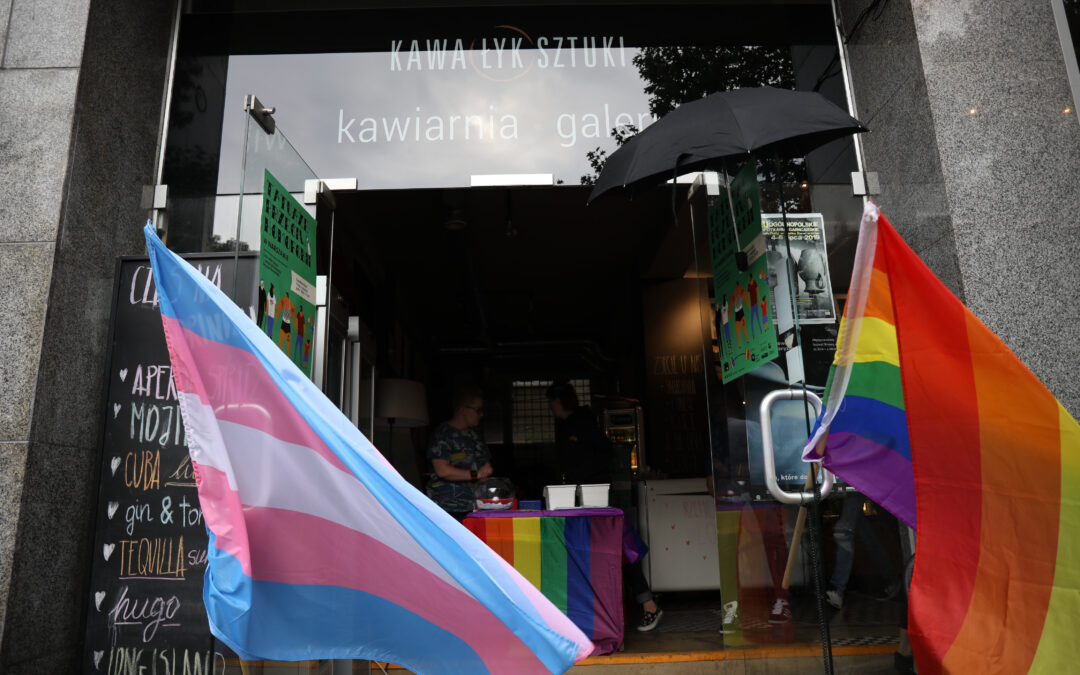Poland’s oldest university has become the first in the country to allow transgender and nonbinary students to choose the name they prefer to be addressed by in the university’s online system.
“To learn well, you have to feel safe, and this is what the tool we have prepared is for,” explained Katarzyna Jurzak, head of the department for safety and equal treatment at the Jagiellonian University in Kraków, Poland’s top-ranked higher-education institution.
The change, which came at the start of the new academic year this week, was made in response to a request from the university’s LGBT+ society, TęczUJ, which noted that the shift to remote teaching during the pandemic has caused problems for some students, reports the Polityka weekly.
Previously, transgender and nonbinary students had had to ask lecturers directly to address them by their preferred name, rather than their birth name.
However, when learning went online, classes run using Microsoft Teams displayed the names of students as they were recorded in the university’s system. That left many transgender and nonbinary students being referred to by a “deadname” that they do not identify with.
“Suddenly the person had to explain again and come out to strangers,” Mitya Zwarycz of TęczUJ told Polityka. “Our colleagues were afraid to log into the classes because they did not want to be called by their deadname, to look at it, use it.”
The university – which was founded in 1364, making it one of the oldest in the world – has therefore now added a new tab within the online system that will allow students to choose their preferred name.
The change will not alter the official data in the system related to an individual’s studies, as this is not allowed by Polish law. But it will enable students to choose the name that will be displayed in the university’s online system, which is then seen by lecturers and displayed during online classes.
In order to add a preferred name, individuals must provide a justification to the department for safety and equal treatment and then go through a short interview conducted by people trained in transgender issues, so that the university administration can be sure the request is genuine.
Zwarycz says that the new system will help students even when normal in-person teaching resumes, as they will no longer have to ask each of their lecturers to use their preferred name.
“Until now, transgender students had a choice: to remain hidden or to explain privately to lecturers how to address them,” says Zwarycz. “We can imagine how uncomfortable this situation is, especially if the lecturer is not sympathetic.”
According to research by Stephen T. Russell, a professor of sociology at the University of Texas, young transgender people who can use their preferred name are 65% less likely to attempt suicide and have a 71% decrease in symptoms of depression.
It is possible for transgender people to legally change their name and gender identity in Poland, but the process takes years and can be blocked or slowed down by their parents, notes Polityka. In 2015, parliament passed a law to simplify the process, but it was vetoed by the president, Andrzej Duda.
The Jagiellonian University’s decision comes amid growing conflict over LGBT issues in Poland, whose national-conservative government has led a campaign against what it calls “LGBT ideology” – and sometimes “gender ideology” – since early last year.
This week, the government named a new education minister who has been at the forefront of this campaign. Przemysław Czarnek – who will oversee schools and universities – has said that “LGBT ideology” is connected to Nazism and that its adherents do not deserve the same rights as “normal people”.
Last month, another government minister proposed banning the promotion of “LGBT ideology” and the teaching of gender studies at Polish universities and schools, saying that they “severely corrupt young people”.
When Czarnek was asked this week if he would, like his predecessor as higher education minister, Jarosław Gowin, promise to protect the teaching of gender studies at universities, he refused to do so.
“In this case, I have a different opinion from Jarosław Gowin,” Czarnek told Polsat News. “There is no place [in universities] for things that would ideologise Polish society by force.”
Students at Warsaw University have unfurled a rainbow flag as part of a protest against President Duda, who has attacked "LGBT ideology", being invited to inaugurate the new academic year and yesterday's appointment of an anti-LGBT education minister https://t.co/8tJCKoSAOS
— Notes from Poland 🇵🇱 (@notesfrompoland) October 1, 2020
Yet while the government has pursued its anti-LGBT campaign, many of Poland’s universities have pushed ahead with policies designed to support LGBT staff and students.
A number of institutions – including the University of Warsaw, University of Wrocław and the Pedagogical University in Kraków – have adopted a document setting out policies for preventing discrimination against LGBT people. Its definition of harassment include the “deliberate use of an inappropriate name or pronoun to refer to a transgender person”.
Officials at the University of Wrocław have expressed interest in introducing a similar system to the one now in place at the Jagiellonian University that would allow transgender students to choose their preferred name.
Last month, the University of Silesia published a video advertising the fact that it was a “place for everyone”, regardless of “religion, nationality or sexual orientation”. It featured one of the university’s gay students, alongside others from Korea and Nigeria, and one with disabilities.
Main image credit: Maciek Jazwiecki / Agencja Gazeta

Juliette Bretan is a freelance journalist covering Polish and Eastern European current affairs and culture. Her work has featured on the BBC World Service, and in CityMetric, The Independent, Ozy, New Eastern Europe and Culture.pl.




















